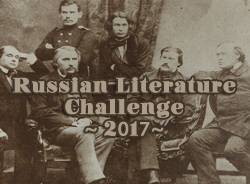The District Doctor by Ivan Turgenev
 |
| Ivan Turgenev |
Anyone that has spent more than one minute in my presence knows Ivan Turgenev is my favourite writer. I've been making my way through his work for a while now and I've also been reading biographies and articles about Turgenev the man for just as long. I've never come across a male writer who I respect as an artist and as a person quite as much. It's common knowledge that Turgenev's work Sketches From a Hunter's album was a reason serfdom was abolished in Russia but he also changed things for women in Russian society at the time. I could write an entire essay on how he changed things not just in Russia but across Europe but I'll save that for another day. I had been looking forward to the District Doctor for a while and it did not disappoint.
The District Doctor, which can be found in the aforementioned text Sketches from a Hunter's album, was published in 1855. It's a simple tale about a man (the Sportsman) who becomes ill during his travels and meets the "District" doctor who then tells the Sportsman about an event from his past. The Doctor muses about how sometimes you can be strangers but for some reason blurt out secrets like you're in confession:
" Strange things happen in the world: you may live a long time, and on friendly terms, with one man, and never once speak frankly from your soul with him; with another you hardly manage to make acquaintance and behold: either you have blurted out to him your most secret thoughts, as though you were at confession, or he has blurted out his to you. "
I'd like to end this post with a description within the story of how it feels for medical professionals to not be able to save dying patients. It was beautifully written and deeply affecting:
"You are not a doctor, my good sir; you cannot understand what passes in a poor fellow’s heart, especially at first, when he begins to suspect that the disease is getting the upper hand of him. What becomes of his belief in himself? You suddenly grow so timid; it’s indescribable. You fancy then that you have forgotten everything you knew, and that the patient has no faith in you, and that other people begin to notice how distracted you are, and tell you the symptoms with reluctance; that they are looking at you suspiciously, whispering... Ah! it’s horrid! There must be a remedy, you think, for this disease, if one could find it. Isn’t this it? You try—no, that’s not it! You don’t allow the medicine the necessary time to do good... You clutch at one thing, then at another. Sometimes you take up a book of medical prescriptions—here it is, you think! Sometimes, by Jove, you pick one out by chance, thinking to leave it to fate... But meantime a fellow-creature’s dying, and another doctor would have saved him. ‘We must have a consultation,’ you say; ‘I will not take the responsibility on myself.’ And what a fool you look at such times! Well, in time you learn to bear it; it’s nothing to you. A man has died—but it’s not your fault; you treated him by the rules. But what’s still more torture to you is to see blind faith in you, and to feel yourself that you are not able to be of use."
This is my 8th completed title for my Turgenev Project.
-------------------------------------------------------------------
I am currently working on researching and compiling a new Classics Club list which I hope to have finished by the end of the week. It's taken hours and hours to put together but I am very proud of it.


Nice post.
ReplyDelete